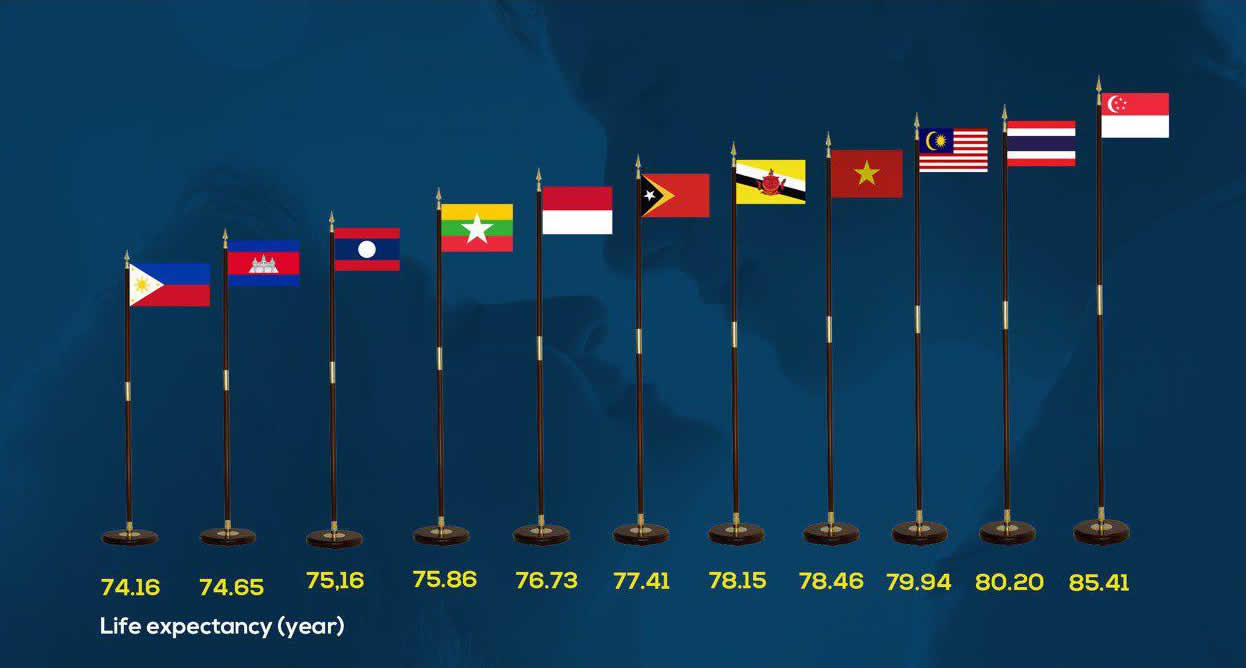|

Life Expectancies in Southeast Asia in 2040, based on a study published in the journal of The Lancet. Life expectancy is a good gauge of a country’s development and its ability to provide for the overall wellbeing of its citizens (article). Filipinos are expected to have the shortest lives. Graphic: seasia.co

uestion: Who was number one in Southeast Asia during the 1950’s? The answer most Filipinos, alive during that period, would say it was the Philippines. By most measures, the country was far ahead of the pack. PAL (Philippine Airlines) was the region’s first airlines. The PSE (Philippine Stock Exchange) opened its doors to stock trading decades before Singapore, Malaysia, Thailand, Taiwan, South Korea, or China opened theirs. The WHO (World Health Organization) made Manila the site of its regional offices. Many multinational companies put up their regional headquarters in Manila, then later, Makati. The AIM (Asian Institute of Management), the foremost business school in Asia at the time, was located in the Philippines. And so on.
It sounds unbelievable today, but in the Fifties and early Sixties, many Philippine companies were technologically ahead of many of their regional rivals. The United States was then the world’s richest nation and the leader science and innovation. As a former US territory, the Philippines greatly benefitted from its closeness to America.
So, what happened? Why has the Philippines lost its place at the head of the pack in Southeast Asia? Everyone seems to have their own theories, so here are a couple of reasons we believe that holds us backs. First, we are primarily a country of padrinos and compadres. Filipinos seem to value personal ties and connections over an individual’s abilities. How far one gets in life depends more on who they know rather than on how good they are at what you do. Thus, in business, academia, or the public sector, mediocre individuals with strong connections make it to the top, while the truly talented languish in the trenches. In the Philippines, dull minds run the government, teach in schools, and run businesses.
Second, the Martial Law era of Ferdinand Marcos institutionalized corruption. Many say Martial Law ripped apart the social fabric that bound Filipinos together. Filipino killed and tortured Filipino. Marcos and his cronies flaunted the fact that they were above the law and there was nothing anyone could do about it. Filipinos saw the Marcoses and the sycophants that surrounded them grow extremely wealthy at the expense of everyone else. The Marcoses and their cronies had inadvertently drilled into the minds of Filipinos that cunning and deceit was the quickest way to wealth and power. Even today, there are legions who fall for get-rich-quick schemes or engage in shady business practices. Lots of money quickly is all that matters.
There are obviously many other reasons that explain why we Filipinos are where we are today. Tell us what you think. Then tell us what we can do to correct the situation. Published 2/11/2019
|